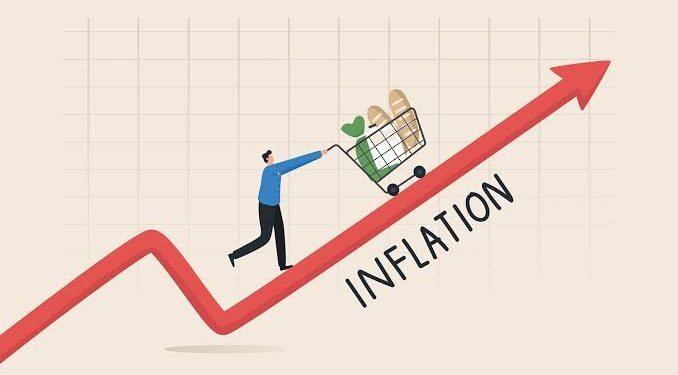Energy and other commodity prices are projected to become significant deflationary factors in the forthcoming years, according to the World Bank.
This trend may pose challenges for central banks aiming to implement interest rate reductions.
In a report released on Thursday, the multilateral lender highlighted that the substantial decline in commodity prices observed over the past two years has stabilized.
This stabilization is attributed to tightening supplies due to geopolitical tensions and increased demand for industrial metals and those utilized in the energy transition.
According to Financial Times News, between mid-2022 and mid-2023, global commodity prices experienced a notable decrease of 40 per cent, impacting commodities such as oil, gas, and wheat. Consequently, global inflation saw a reduction of approximately 2 percentage points during this period, according to the findings of the bank
But over the past year, prices have plateaued, according to the World Bank’s index, putting an end to this deflationary pressure.
“Global inflation remains undefeated,” said Indermit Gill, World Bank Group’s Chief Economist and Senior Vice-President. “A key force for disinflation — falling commodity prices — has essentially hit a wall. That means interest rates could remain higher than currently expected this year and next.
“The world is at a vulnerable moment: a major energy shock could undermine much of the progress in reducing inflation over the past two years,” he added.
Commodity prices will fall as little as 3% in 2024, 4% in 2025
The bank forecasts that commodity prices will fall as little as 3% in 2024 and 4% in 2025. That would still leave prices about 38% higher than they were on average between 2015 and the start of the coronavirus pandemic in 2020.
This slowdown in price falls will do little to quell above-target inflation and create a problem for central banks wanting to bring down interest rates, according to the report.
“The big deal was that commodity prices were staying high while global growth slowed, Ayhan Kose,” the World Bank Group’s deputy chief economist, told the Financial Times.
This divergence marked the start of “a new era”, Khose added, noting that the last time this happened was in the wake of the 2008 global financial crisis.
While most commodity prices are still set to come down at a slower pace, according to the bank’s forecasts, the copper rate is set to rise as the energy transition spurs demand for the metal, which is essential for manufacturing electric cars and upgrading the electricity grid.
Double-digit growth in global energy investment “brings additional pressure on the demand side, keeping prices higher”, said Khose. Demand in China had also been more robust than expected, he added.
Recommended reading: World Bank projects 15.1% Nigerian inflation rate in 2026
Tensions in the Middle East
The report also forecasts that tensions in the Middle East will push up the cost of gold — seen as a haven in times of conflict and oil. The bank expects the price of Brent crude oil to average $84 a barrel this year, slightly higher than last year’s average, and $79 in 2025. On Thursday, Brent was trading at about $88 a barrel.
Commodity prices could be even higher if conflict in the Middle East escalates, however, the report added.
“Those tensions bring a certain premium, especially in the context of the price of oil, and also bring more frequent price movements,” said Khose.
The bank forecasts that, if the conflict intensifies in a worst-case scenario, oil prices could blast through $100 per barrel this year. Such a sharp rise would push up overall global inflation nearly by 1 percentage point, it said.
Source: Nairametrics













